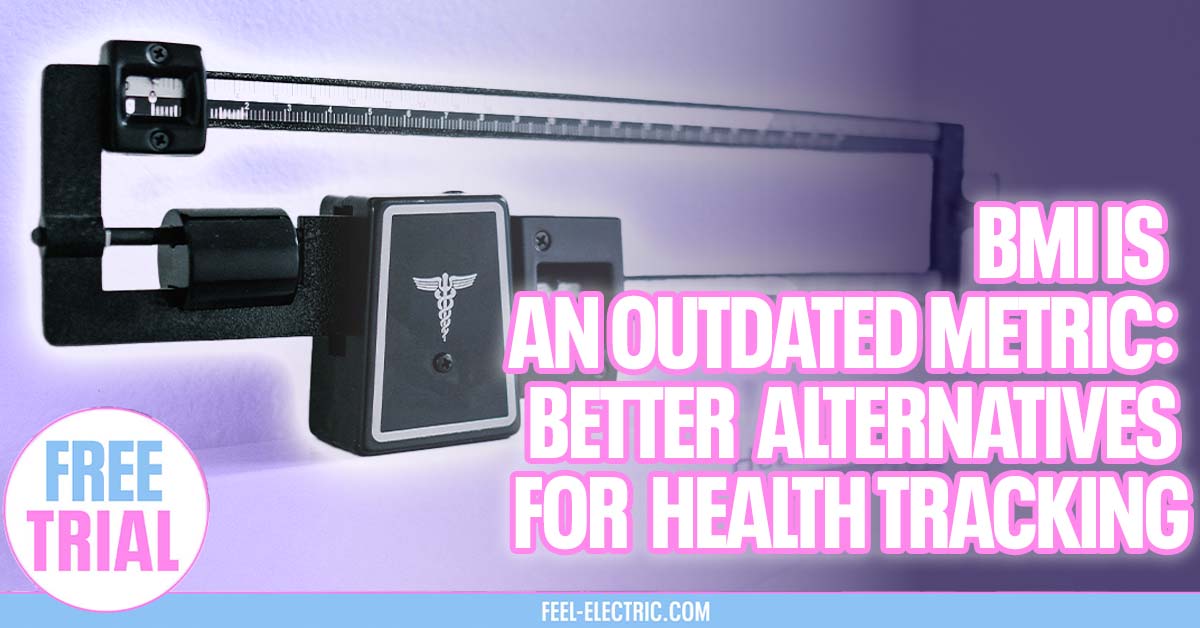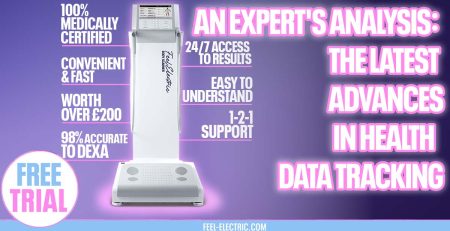BMI, an Outdated Metric: Better Alternatives for Health Tracking
Feel Electric are a health technology company on the cutting edge of the fitness industry. We provide EMS training, Nutritional Support and Accurate Body Composition Analysis. Our BRAND NEW PRODUCT: Body Scan allows individuals to track their health data. For Decades, the standard metric of tracking healthy weight levels has been the Body Mass Index (BMI). This metric is outdated, relies solely on weight tracking and does not have safeguards in place to account for the much denser and more compact weight of muscle in the body, resulting in muscular individuals being labelled obese or overweight.
Why BMI is Outdated and Health Metrics Need Change
One of the primary drawbacks of BMI is its failure to differentiate between muscle mass and fat mass. This means that individuals with high muscle mass, such as athletes or bodybuilders, may be categorized as overweight or obese despite having low body fat percentages and being metabolically healthy. Additionally, BMI overlooks the distribution of fat within the body. Visceral fat, which accumulates around organs, poses greater health risks than subcutaneous fat, located just beneath the skin. As a result, two individuals with the same BMI may exhibit significantly different body compositions and health profiles.
Moreover, BMI standards were established primarily based on studies involving white populations, potentially leading to inaccuracies when applied to diverse ethnic groups with differing body compositions. Furthermore, it does not account for age and gender differences in body composition, as older adults may have higher body fat percentages than younger individuals with the same BMI, and women typically possess more body fat than men at equivalent BMI levels.
![]()
How to Measure Fat and Weight Medically without BMI
Alternative methods to BMI offer more accurate measurements and are better suited for medical tracking of weight and illness risk because they provide a more comprehensive assessment of body composition and associated health risks. Here are some of these alternatives and why they are preferred:
- Waist-to-Hip Ratio (WHR): This ratio compares the circumference of the waist to that of the hips. A higher WHR indicates more abdominal fat, which is associated with an increased risk of cardiovascular disease, type 2 diabetes, and other metabolic disorders. WHR is particularly useful because it specifically targets visceral fat, which is a major contributor to health risks.
- Body Fat Percentage: Unlike BMI, which only considers weight and height, body fat percentage directly measures the proportion of fat mass to total body mass. This measurement can be obtained through various methods such as dual-energy X-ray absorptiometry (DEXA), bioelectrical impedance analysis (BIA), or skinfold calipers. Monitoring changes in body fat percentage over time provides a more accurate assessment of changes in body composition and associated health risks.
Feel Electric Body Scan – Your Solution to Overcoming Archaic BMI Scores
The Body Scan full-body composition analyzer from Feel Electric utilizes bioelectrical impedance analysis (BIA) to provide a more accurate and comprehensive assessment of body composition compared to simply tracking BMI. Body Scan Measures Body Fat Percentage. Unlike BMI, which only considers weight and height, the Body Scan provides a direct measurement of body fat percentage using BIA technology. BIA sends a low-level electrical current through the body and measures the impedance (resistance) encountered by the current. Since fat, muscle, and other tissues have different electrical conductivities, BIA can estimate body fat percentage with reasonable accuracy. This allows for a more precise assessment of body composition and health risks associated with excess body fat.
Furthermore, Body Scan uses Segmental Analysis which provides insights into body composition in different regions of the body. By assessing body fat percentage and muscle mass in specific segments such as the trunk, arms, and legs, it can identify asymmetries or imbalances in muscle distribution and fat deposition. Segmental analysis is valuable for targeting interventions and monitoring changes in specific areas over time.

Get your Body Scan Free Trial Today
In summary, the “Body Scan” full-body composition analyzer offers a more accurate and insightful assessment of body composition and associated health risks compared to BMI alone. By incorporating measurements of body fat percentage, segmental analysis it provides a comprehensive picture of an individual’s health status and facilitates personalized interventions for improved health outcomes.
Experience the benefits of Feel Electric with a Free Trial and order your first Body Scan online with No Commitment. We are dedicated to helping you achieve your health goals through our innovative approach to EMS Training, Nutrition guidance, and detailed full body composition analysis. Stay active and prioritize your well-being with Feel Electric today!


